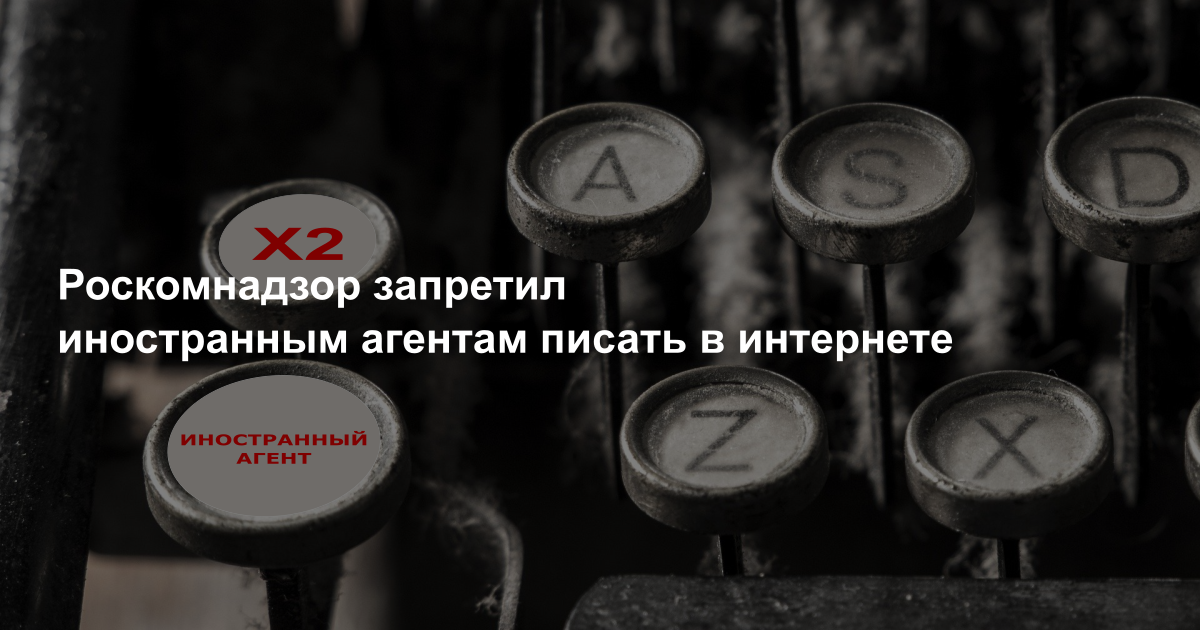As the Telecom-Review Telegram channel drew attention yesterday, back in September Roskomnadzor issued an order with a relatively innocent bureaucratic title “On approving a form indicating that messages and materials of a foreign media outlet performing the functions of a foreign agent and (or) a Russian legal persons performing the functions of a foreign agent, distributed on the territory of the Russian Federation, were created and (or) distributed by the said persons ”.

Unfortunately, in July, when the draft order was posted , no one paid serious attention to its content - and in vain.
Although the name pops up associations with the labeling "On the Rights of Advertising", which some publications have long since learned to make not too noticeable, while others generally maneuver between it and "partner materials", in reality, due to either the technical ignorance of the authors, or purposefully - but legal entities and media with the status of a foreign agent were essentially banned from writing on the Internet .
What is characteristic - and this point is worth remembering - they did it implicitly, without a direct prohibition, simply by putting forward technically unrealizable requirements. And this is a clear example of how important it is in the modern technological world to be able to read between the lines and evaluate not only the letter, but also the spirit and practice of applying bills.
Under the cut - the brightest provisions of the order, more precisely, the appendix "Form of instruction ..." to it.
- ()
- ()
In fact, the order imposes a requirement not on foreign agents, but on platforms for disseminating information , starting with social networks and ending with blog and media engines.
Posting on Facebook, VKontakte, Telegram channels, Twitter becomes impossible due to the fact that the text formatting tools available on these networks do not allow you to follow the instruction about the double font size.
Posting on YouTube and other video hosting sites becomes impossible due to the fact that all video hosting sites have built-in "technologies for increasing the speed of pointing to playback", and also do not have the ability to force the playback of a given fragment at "every resuming broadcast".
Placement in many media and blogging platforms becomes difficult, since the available text formatting tools either do not allow for the requirement for double font size, or such a font visually disfigures the layout of the publication.
That is, upon encountering in almost any information distribution channel any message from a foreign agent, or a repost of a message from a foreign agent, or material based on a message from a foreign agent, Roskomnadzor in most cases can issue an order to remove it under the threat of blocking the entire channel simply by reflex.
Thus, in addition to the very offensive nature of the requirements, from a purely technical point of view, they are drafted in such a way as to completely prohibit the publication and dissemination of information in any way related to the media and legal entities recognized as foreign agents.
We asked Artem Gavrichenkov, Technical Director of Qrator Labs, to comment on the current situation:
I think Durov can solve this problem in the most offensive way for RKN.We have nothing to add to this at the moment.